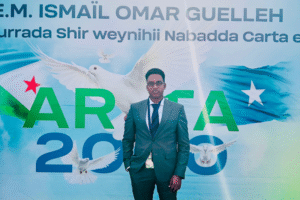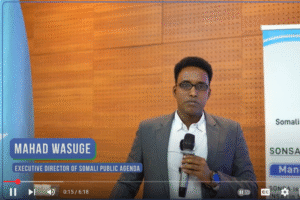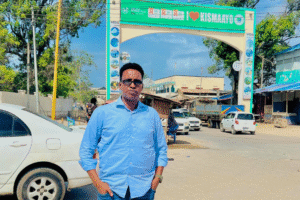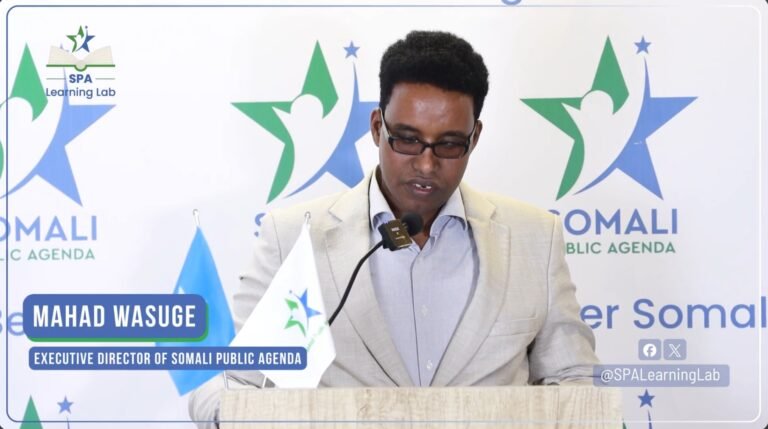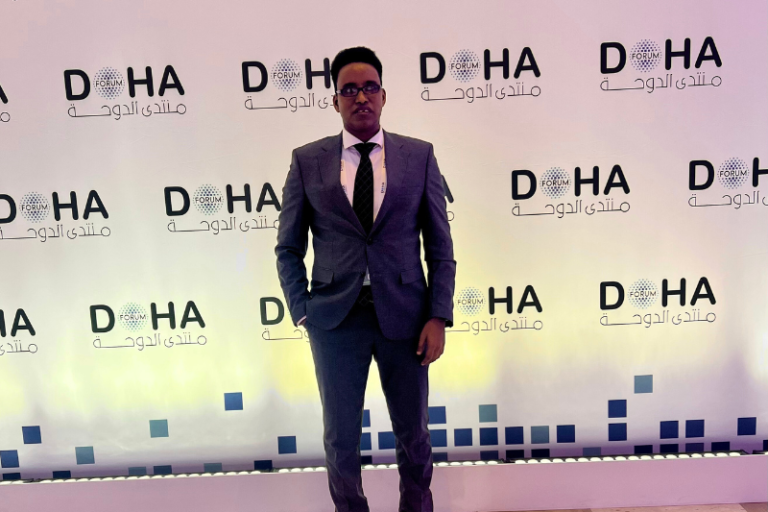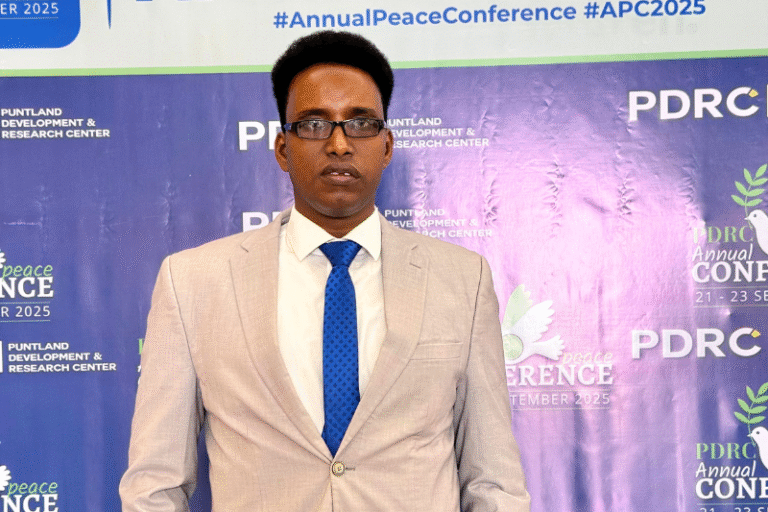
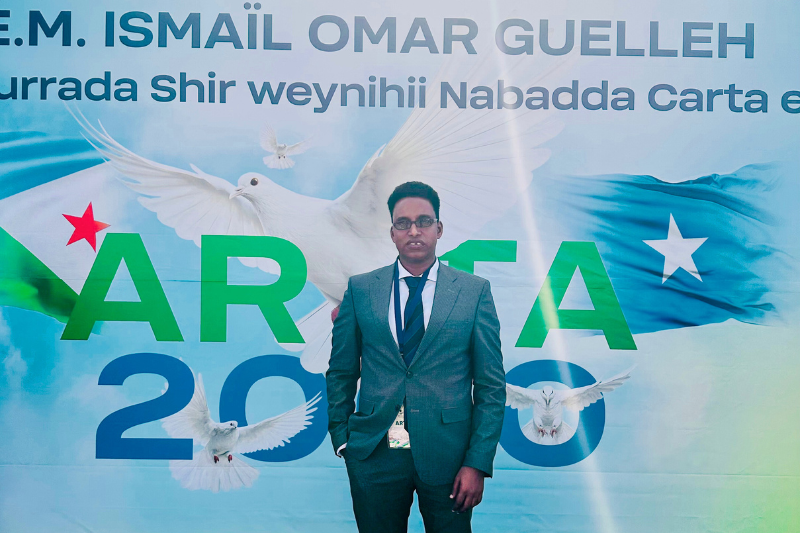
I recently received an invitation to attend the commemoration of the 25th anniversary of the Arta Peace Conference and the inauguration of the Arta Peace Memorial. The memorial has been built at the same location where the historic conference for Somalia was held 25 years ago. I was pleased to receive the invitation and happy to know that efforts had been made to document evidence of that important conference for Somalia that led to the birth of the Third Republic – the Transitional National Government (TNG).
I was particularly glad about the commemoration and Peace Memorial because eight years ago, in December 2017, I visited Arta and there was no evidence of the Arta Peace Conference. The location where the big conference tent was built was a football playground and did not even have a billboard. Over the past two years, the Djibouti government built a Peace Memorial and a tent at the same site.
When the conference was ongoing in the year 2000, I was young, around 12 years of age, but I watched the conference on Radio Télévision Djibouti (RTD) at a public place where many residents of Buulaburte gathered. One woman from Buulaburte, Hindi Cifaaf Wehliye – who later joined the Transitional National Parliament (TNP) – was attending the conference, and we were proud to have representation there. We were hopeful that a government would come out of the conference after a decade of lawlessness and chaos.
Several hundred Somalis were invited to attend the 25th anniversary commemoration of the Arta Peace Conference. Over hundreds of us traveled from Mogadishu to Djibouti on 29 October, while others had arrived earlier and begun discussions and reflections on Somalia’s state-building efforts over the past 25 years. Among those of us from Mogadishu were traditional elders, religious sheikhs, and senior citizens who attended or played a role in the Arta Peace Conference. For many of them, it was an emotional return to a historic place.
Upon our arrival in Djibouti, government officials warmly welcomed us. On our way to the hotel, someone jokingly told the passengers on the bus that it had stopped because of traffic lights. He joked that he was saying this particularly for the youth on the bus who might know about traffic lights. It was just a reflection of how many Somalis in Somalia are not familiar with such basic traffic control signals, although those of us who have the privilege to travel have some experience from the countries we have visited. It generated a discussion among the passengers as we headed to the Sheraton Hotel, where our team was to stay. The Djibouti government accommodated the hundreds of delegates attending the anniversary in different hotels. Sheraton was a familiar hotel to me as I stayed there the first time in December 2017.
We were informed that we should be ready for the trip to Arta early in the morning and that the event would start around 8:30 a.m. We had to collect our badges in the evening of 29 October or the early morning of 30 October for easy access to the venue in Arta. We had to wait nearly an hour for participants who were delayed for different reasons. The organizers, to their credit, started contacting the rooms of the participants to make sure they didn’t leave them at the hotel. Those who were on time and had sat on the bus for a long time did not like the long wait. When those we waited for entered the bus, some expressed their frustration.
It took us an hour to reach Arta. Our bus left at 8:45 a.m. from the Sheraton Hotel. We were among the last people to arrive at the venue. On the way, we saw roads that were well made, and some still under construction. The tarmac roads were wide and smooth, reducing the travel time. The last time I was in Arta eight years ago, the road was not that good. I could see notable improvements in road infrastructure. As we neared the venue in Arta, we could see mountains and security personnel ensuring safety from a distance.
When we arrived near the tent, the bus was parked at a football playground. We were then directed toward the tent. I was among a few leading the delegates. Djibouti citizens were standing in lines near the road. They started waving Somalia and Djibouti flags and singing songs for us. We felt important and warmly welcomed. Security forces were directing us to the location. We finally arrived at the destination, excited about the experience and the program ahead.

We started taking pictures of ourselves in front of the tent and the Peace Memorial building. There were many Somali TV journalists interviewing participants at the event. I made sure to capture photos of myself in this rare moment.

When I entered the tent built in exactly the same location where the conference was held for Somalis 25 years ago, it was full of delegates. I greeted participants, including Amb. Mohamed Ali Americo, former MPs, and friends. My focus then became getting a chair to sit on! I luckily found a spot near a big screen where I could easily watch the songs and speeches at the podium and activities outside the tent. We were entertained with songs sung by singers from both Djibouti and Somalia. As we awaited the official opening of the programme, I reflected how lucky I was to be in the same location I watched from the screens 25 years ago. I was surely fortunate to be among the small sample of Somalis invited to attend the commemoration of the 25th anniversary of the Arta Peace Conference.

The two presidents of Somalia and Djibouti arrived and opened the Arta Peace Memorial, accompanied by former leaders, including one former president and several former prime ministers and former speakers of parliament. They toured the building as we watched from the screen. They then entered the tent, and the speeches followed.
Asha Haji Elmi, who was the only person at the tent among the chairpersons of the Arta Peace Conference, delivered an emotional speech. I also became emotional when she was speaking. She reflected on the process that led to the birth of the Transitional National Government (TNG) and appealed to the President of Somalia to lead Somalia and engage intellectuals. A recorded speech by the president who was elected in Arta – Abdiqasim Salad Hassan – was played. Sharif Sheikh Ahmed, who was elected in Djibouti in early 2009, also spoke at the event, followed by President Hassan Sheikh Mohamud.
The Djiboutian president, Ismail Omar Guelleh, who spoke after President Hassan Sheikh, explained how he felt bad when he attended the UN General Assembly soon after his election in 1999, with the Somalia seat at the UN being empty. He initiated the peace process, selected Arta to reduce the influence of external embassies, and asked Somalis to support him, with the famous phrase “ii hiilliya.” He said in his speech at the 25th anniversary that if he asked Somalis to support him and reconcile 25 years ago, he would also appeal today for them to support him by making Somalia a better-governed country that fixes its internal problems. That deeply resonated with the state of governance in Somalia a quarter of a century later.
When the speeches concluded, I had the opportunity to tour the Arta Peace Memorial. There were books, pictures, names, and registration forms of people who attended the conference. On the walls, there were slogans, information about the conference, and news reported about the event. The slogans on the walls included: “Dugsi maleh qabyaaladi waxay dumiso mooyaane” by Abdullahi Suldan Timacadde and “Noloshu Waa Nabad, Sharaftuna Waa Qaran.” There were screens that played conference speeches and pictures of Somali trees. The stairs at the Peace Memorial had names written on them including peace, mediation, culture, history, museum, and exhibition.

It is a much-needed place documentation that we can visit in the future with our families. It could also become the venue where mediation and dialogue can be held for the Somali political elite in the future.
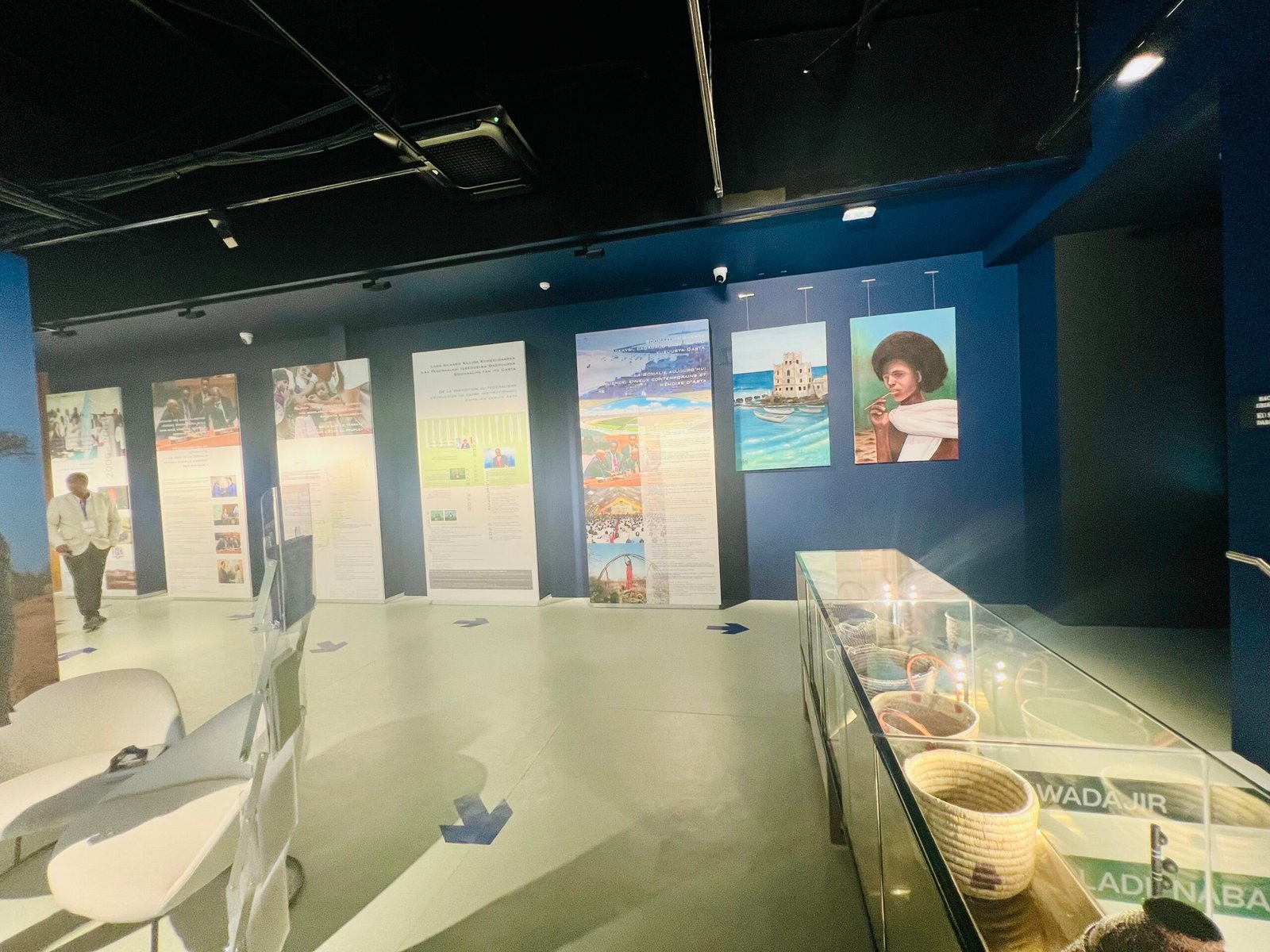
The day, 30 October 2025, concluded with a dinner at the Presidential Palace. The Somali president awarded a prize to the Djibouti president after several short speeches. The dinner was an opportunity for connections and engagements among the Somalis who stayed at different hotels.
The work done by the Djibouti government in Arta was incredible. One can have an opinion on the Djibouti government and its leadership, but the Djibouti role and genuine effort to help Somalia build a government is deep and beyond what I can describe in words. We Somalis have to appreciate such brotherly support that we cannot get from any other country. The only way we can give back is to make Somalia a better-governed country and address the internal challenges crippling us. The 25th anniversary of the Arta Peace Conference was an important reminder of where we came from and an opportunity to reflect on where we have reached, as well as the importance of an inclusive dialogue for addressing Somalia’s most critical political and security challenges.
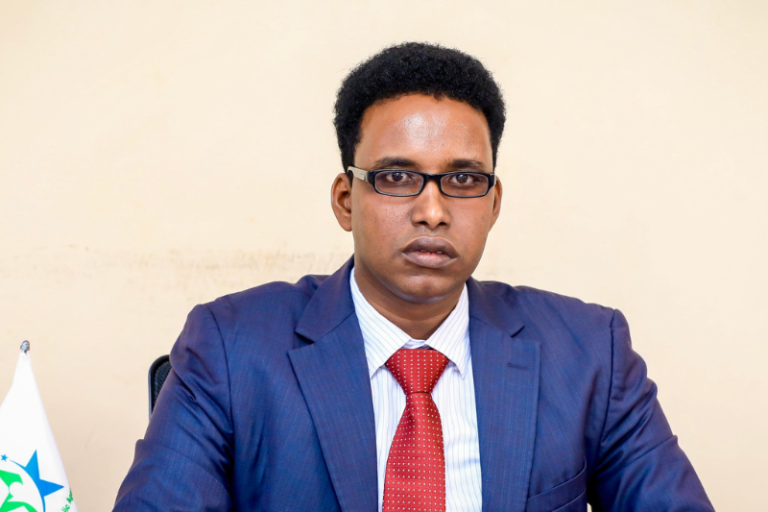
Is a researcher, teacher, podcaster and blogger. His work over the last decade has focused on teaching and researching governance, justice and social services in Somalia.

